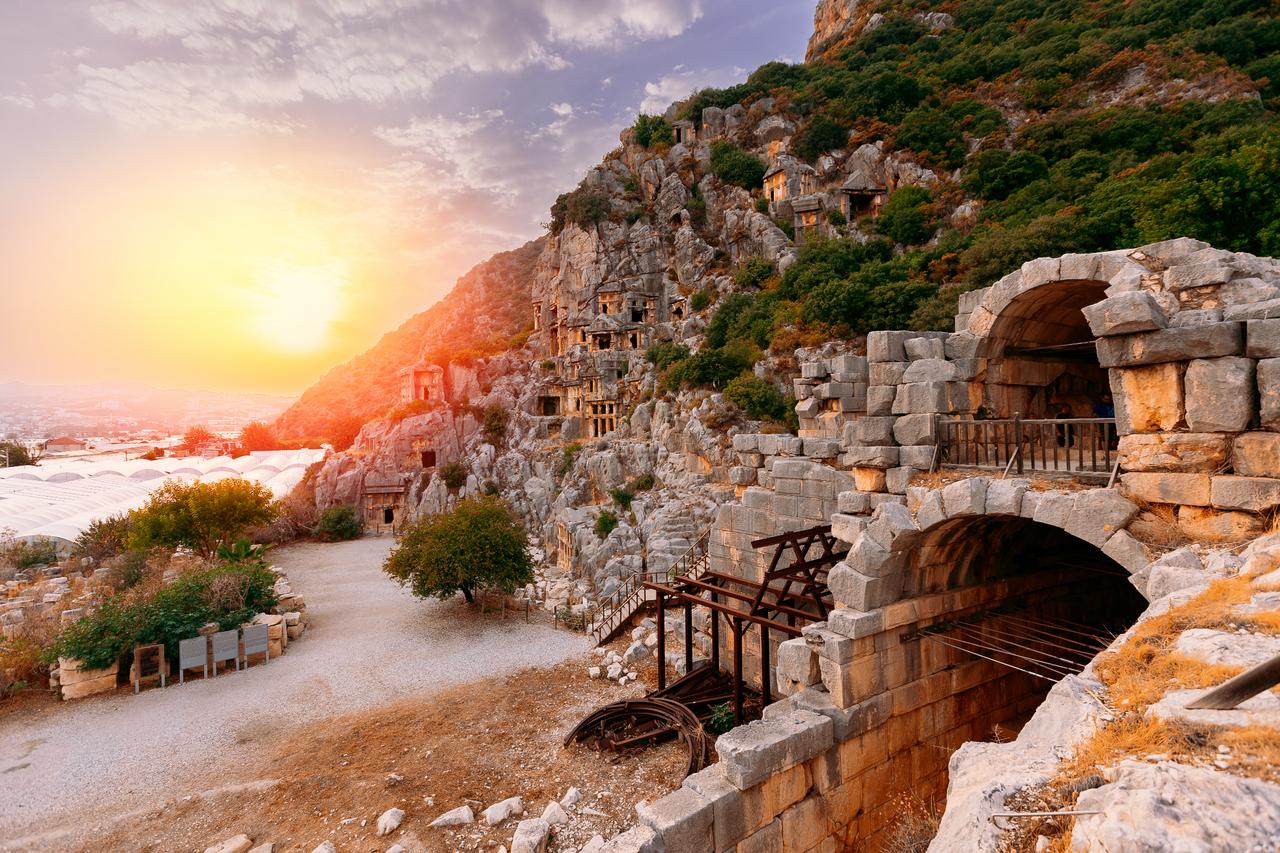
A controversial highway project planned between Demre, Kas, and Kalkan in southern Türkiye is drawing sharp criticism from archaeologists, environmentalists, and local communities, who warn it could irreversibly damage a region rich in ancient Lycian heritage.
According to Arkeofili from Türkiye, the proposed route cuts through an area that includes 11 registered archaeological sites and nine designated conservation zones. Despite a long-standing legal battle and growing opposition from civil society groups and local residents, authorities have pushed ahead with the plan, which would replace or expand existing roads rather than improve them.
Back in 2017, the Antalya Governorate issued a decision stating that an Environmental Impact Assessment (EIA) was “not necessary” for the Kas-Kalkan section. However, a court later overturned this ruling in favor of the plaintiffs. In 2021, a new EIA was presented for public discussion, this time covering sections through Finike, Demre, and Kas. After public backlash, the Finike section was temporarily withdrawn from the plan.
According to the Archaeologists Association, the project follows the final EIA report approved by the Antalya Regional Board for Cultural Heritage Preservation in August 2023. The highway corridor includes or passes near several significant ancient sites:
Experts warn that blasting through the rocky Lycian terrain would be akin to "tearing apart a 2,500-year-old history book."
The board’s claim of "minimal impact" has sparked outrage. Critics argue that building tunnels and viaducts over or under first-degree archaeological zones would not only cause environmental and visual damage but also undermine the integrity of cultural landscapes. A tunnel proposed beneath Hoyran is described by experts as a "scientifically indefensible and dramatically harmful decision."
The project’s potential social and ecological impacts are also significant. Although the Finike segment was removed, the highway would still run from Beymelek Port to Kalkan, affecting:
Questions also remain unanswered about where over 12 million cubic meters of excavation debris would be dumped.
Two lawsuits have already been filed against the project—one targeting the board’s approval, another challenging the legality of the plan. In one case, 58 citizens from Demre brought forward a suit arguing that the road would devastate archaeological zones including the Lycian Way, a historic walking trail. On July 11, 2025, a site inspection by a court-appointed expert panel took place, starting at the ancient water channels of Myra and ending at Hoyran's necropolis and wells.
Lawyer Tuncay Koc, representing local plaintiffs, briefed the expert team on the irreversible damage the project could cause. Among those present was former Minister of Culture and Tourism Ertugrul Gunay, who argued the project was unnecessary and largely the result of political pressure. Local village and neighborhood heads have also expressed their opposition, calling instead for upgrades to the existing road network.
The Demre Culture and Environment Group has called on the public to join the preservation efforts before what they describe as “an irreplaceable archaeological heritage is lost.”
The Archaeologists Association insists that the highway project violates Türkiye’s Constitution—particularly articles safeguarding cultural and natural assets—and contradicts a national principle prohibiting construction within first-degree archaeological sites, unless strictly for scientific research.
In a final warning, the association stated: “This project will cause irreparable harm. Blasting Lycian tombs, water systems, and sacred landscapes is not only a loss for Anatolian cultural history, but also for world heritage. It must be stopped before it’s too late.”